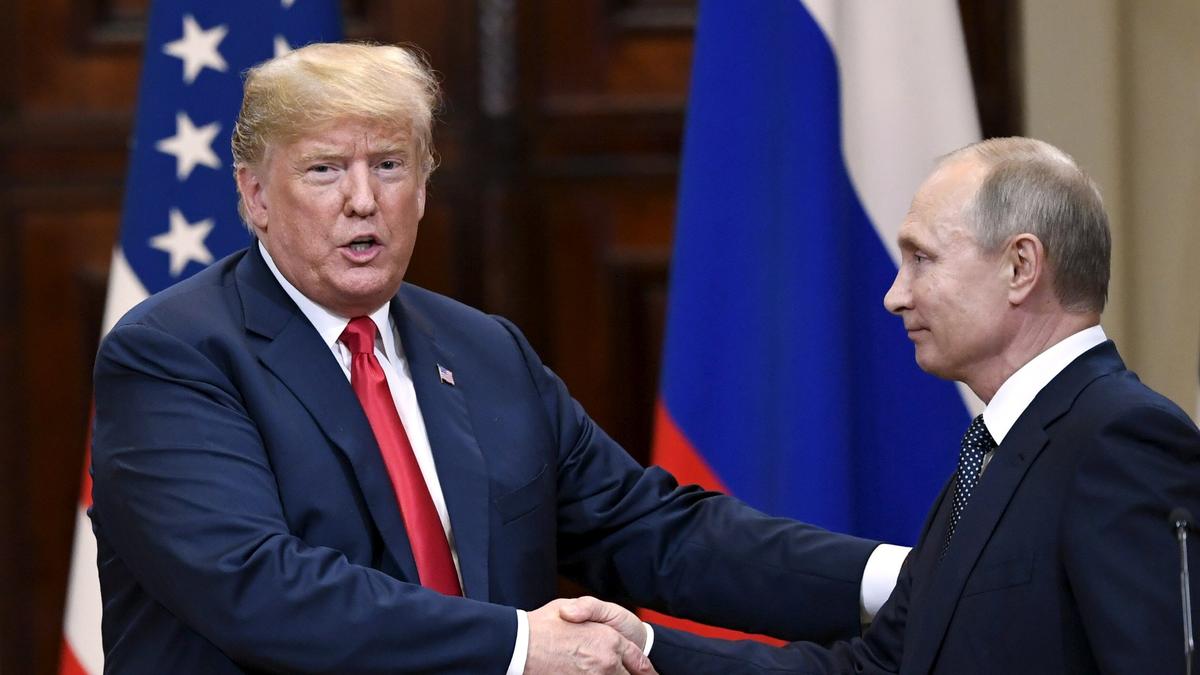In his new book “Save America,” former President Donald Trump presents a collection of photographs, anecdotes, and recollections from his presidential campaigns and time in office. This book serves as a platform for Trump to defend his actions and policies, highlighting his views on a variety of issues, including his interactions with foreign leaders, his relationship with social media platforms, and his perspective on the 2020 election. While offering insights into Trump’s worldview, the book also reveals his enduring resentment towards his political opponents and his inclination to promote unsubstantiated claims.
Trump’s Defense of the Helsinki Summit
One of the most notable aspects of “Save America” is Trump’s steadfast defense of his widely criticized 2018 summit with Russian President Vladimir Putin in Helsinki. Despite the widespread condemnation of Trump’s stance at the time, he maintains that the meeting was “GREAT” and claims that the “Fake News” fabricated false stories about the event. Trump’s recollection of the summit is starkly different from the official US intelligence assessments which concluded that Russia interfered in the 2016 election. This dissonance highlights the deep divide between Trump and the US intelligence community regarding Russia’s actions and the perceived threat it poses to American democracy.
Putin as a “Strong Man”
Trump’s unwavering belief in Putin’s assertions about non-interference in the 2016 election, along with his portrayal of the Russian leader as a “strong man,” further exemplifies the deeply ingrained trust he places in authoritarian figures. Trump argues that despite the alleged Russian interference, he “had an understanding” with Putin and they “got along well.” This assertion suggests that Trump prioritizes his own personal connection with powerful individuals over the interests of national security and democratic principles.
Targeting Mark Zuckerberg
Trump’s book also delves into his animosity towards Facebook founder Mark Zuckerberg. In “Save America,” Trump accuses Zuckerberg of orchestrating a “PLOT AGAINST THE PRESIDENT” through his donations to election offices in 2020, suggesting these donations were a deliberate attempt to manipulate the election in favor of his opponent. While Zuckerberg’s donations did indeed disproportionately benefit Democratic-leaning areas, it is crucial to recognize that these were legal contributions made through established channels. Trump’s rhetoric fuels conspiracy theories surrounding the 2020 election and aims to delegitimize legitimate electoral processes.
Threatening Reprisal
Trump’s ire towards Zuckerberg culminates in an alarming threat: “We are watching him closely, and if he does anything illegal this time he will spend the rest of his life in prison – as will others who cheat in the 2024 Presidential Election.” This statement exemplifies Trump’s tendency towards hyperbole and inflammatory rhetoric, further exacerbating concerns about the erosion of democratic institutions. While emphasizing his commitment to rooting out electoral fraud, Trump’s pronouncements often lack concrete evidence and resort to vague accusations against perceived enemies, blurring the lines between political disagreement and criminal behavior.
Other Figures in Trump’s World
Trump’s book provides a glimpse into his interactions with other individuals, revealing both his alliances and his resentments. He expresses admiration for sports figures like Jack Nicklaus and Tiger Woods, while portraying former Congresswoman Liz Cheney as someone who sought “baskets of goodies” but was ultimately denied. These vignettes paint a picture of Trump’s penchant for self-promotion and his inclination to cast a harsh light on those who challenge him.
Takeaways
“Save America” offers a fascinating look into Donald Trump’s mindset, highlighting his unwavering self-confidence and his propensity to promote conspiracy theories and denigrate his opponents. While Trump’s narrative paints a self-serving portrayal of his presidency, it is essential to recognize the potential harm his rhetoric could inflict on American democracy. His willingness to dismiss evidence, attack institutions, and embrace authoritarian figures, along with his threat of retribution towards perceived adversaries, pose significant threats to the very foundation of American democracy. This book serves as a cautionary tale, urging a critical assessment of Trump’s pronouncements and highlighting the importance of robust safeguards to protect democratic institutions from individuals who seek to undermine them.









